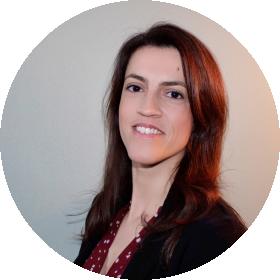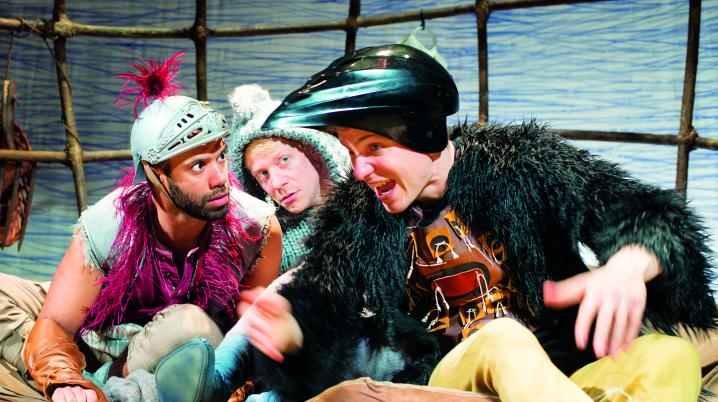
By Minou op den Velde
Dutch youth arts are known for their artistic and high quality productions. Throughout 2019 Never Grow Up! draws the attention of the United States to this specific cultural segment. Anja Krans, programme manager at Dutch Performing Arts and Vera Kuipers of Dutch Culture USA of Consulate General of the Netherlands in New York, coordinate the programme. Time to raise the question: how has everything worked out so far?
Never Grow Up! presented at the International Performing Arts for Youth theatrical fair in Philadelphia last January. What can you accomplish in that arena?
Anja Krans: "IPAY is the largest showcase fair for youth theatre in North America, and an important market for us. Between 400 to 500 professionals are present there. Every self-respecting programmer from the US visits. But there are also people from Australia, Scotland and China. It is the perfect place to create demand for our productions.
We went there with eight companies who presented themselves in a booth at the fair and tried to sell their shows. Four groups gave a showcase with a full performance - Maas Theater en Dans with Eitje, Theatergroep Kwatta with Jabber, Simone de Jong with Kluizelaar and De Dansers with Pokon. There was a great turnout and I was happy to see that the atmosphere was very open-minded. In the Netherlands, you may spot theatre programmers sitting with their arms firmly crossed, but when Americans like a show, they laugh out loud."
Is there a shortage of good youth theatre in America?
"Well, we have noticed that there is a lot of room for youth theatre and youth dance. The Netherlands has many good quality youth theatre groups. This is also the case because the Dutch sector is subsidized, so people can create youth theatre fulltime. We can invest in decors and in quality actors. Youth theatre companies sometimes receive 500,000 euros from the Dutch government and often added resources from the province or the municipality. That is unthinkable in the US. Most youth theatre makers in the US need a side-job.”
How does Dutch youth theatre distinguish itself from what is created in the United States?
"We are strong in visual theatre and physical play, such as mime, and we are good at music theatre. This is an advantage if you want to play abroad as a youth group. A very linguistic performance needs to be played in English. Because you cannot show surtitles to children."
What should Dutch companies bear in mind if they want to perform in the US?
"Sometimes Americans feel our productions are a bit over the edge. Themes as sex, gender, divorce or death can be problematic in the US. While this usually poses no problem at all in other countries."
What has caused this in your opinion?
"In America, children are pretty much shielded from subjects like these. It is also related to the funding in America. Because companies are much more dependent on ticket sales, they do not want children, teachers or parents to be offended. Dutch companies earn slightly less than a quarter of their income from the box office. American companies, on the other hand, get roughly 80% from ticket sales. We cannot enter this market with risky productions. You must play it safe. For example: the production Wuthering Heights by Theatre Artemis played on 42nd Street in 2011. Two classes left the show, because it was suggested that someone was taking a shower. There was no nudity, but the teachers walked away. So if you want to play in the US, you have to be prepared to occasionally make artistic adjustments.
In the US well-known stories or fairy tales are often adapted for theatre, because in that case, no one gets burned. Dutch companies tend to make complicated themes accessible to children. We don’t present Hollywood pictures that always end well. Sometimes our plots are not entirely logical, or we make ironic jokes.
But if you want to play in the US, you have to take their culture into account. A good example is Jabber from Kwatta, which we presented on IPAY, and which was sold immediately afterwards. Kwatta has toured in the US before. They know the way the wind blows. Jabber is a music theatre performance with jabbered lyrics. Playwright Jibbe Willems has created a new language with words from different countries. It tells the story of someone who is not welcome and is literally chased out of the nest. This way you can offer a stimulating message while bypassing the most sensitive themes."
So we can safely say it not easy to conquer the American market.
"Indeed, internationalisation is never easy. In the eyes of the US we are a very small country. Blockbusters from ITA, previously Toneelgroep Amsterdam, with Ivo van Hove, and the NDT, are in demand. But beyond that, success is not guaranteed. Internationalisation is a slow process, because when you are booked, it is always for the following season. In that regard, it is great to see that that our youth theatre has found a way in. A week before IPAY I received a message from Shanghai. The programmer has come over specifically to see Dutch work. Kluizelaar from Simone de Jong will definitely play in Shanghai and at the Edinburgh International Children's Festival.
De Dansers performed on Friday evening. Pokon is quite a physical performance, in which the dancers themselves make music, roll over the ground and play around with plants. It is slightly unpolished, but it was well received, as De Dansers have now been booked for 11 performances in 2020 at the Kennedy Center. That’s one of the most important venues in the US. A great icing on the cake."
Never Grow Up! is a cooperation of Dutch Performing Arts, Dutch Culture USA of Consulate General of the Netherlands in New York, Eye International, Netherlands Film Fund, Cinekid, Dutch Foundation for Literature and DutchCulture.
This is part 3 in a series on Culture for Kids. The occasion of the Conference International Culture for Kids was a joint initiative by DutchCulture, the NAPK, Het Letterenfonds, De Nederlandse Museumvereniging and Cinekid.
Read part 1: Het kindvriendelijke kinderportret, by art historian Rudi Ekkart (Dutch)
Read part 2: The Netherlands: Europe’s playground, by Hans Luyckx


